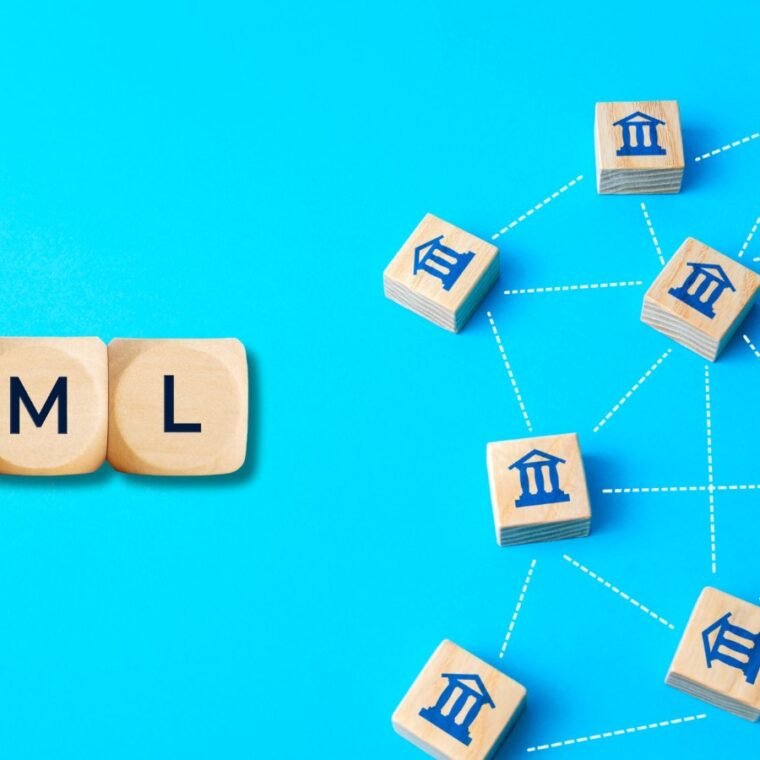Money laundering is a serious financial offense that involves disguising illegal funds and their illicit origins to give them the appearance of being lawful. Individuals employ various methods to seamlessly incorporate these funds into the economy to achieve this. With the advent of modern technologies like cryptocurrencies and online banking, criminals now have a more convenient and discreet means to transfer and withdraw unlawfully acquired funds without arousing suspicion.
Financial institutions in UAE engage in anti-money laundering (AML) practices to ensure compliance with legal obligations by actively monitoring and reporting suspicious activities. This blog aims to provide a broader understanding of AML and its importance.
Importance of Anti-Money Laundering
Illicit activities like smuggling, illegal arms sales, embezzlement, insider trading, bribery, and computer fraud schemes often go hand in hand with money laundering. It is also prevalent in organized crime, including human, arms, and drug trafficking, as well as prostitution rings.
The fight against money laundering goes hand in hand with the effort to counter the financing of terrorism (CFT). Financial institutions or financial services companies in UAE employ anti-money laundering regulations to combat terrorist financing, as they intertwine the identification of the source of funds and the destination of funds.
In addition to the moral obligation to combat money laundering and terrorist financing, Financial institutions utilize AML practices to:
- Comply with regulations by monitoring customers, and transactions, and reporting suspicious activity.
- Protect their brand reputation and shareholder value.
- Avoid consent orders, civil and criminal penalties resulting from noncompliance or negligence.
- Reduce costs associated with fines, employee and IT expenses, and reserve capital for risk exposure.
Anti-Money Laundering: How It Works
To effectively combat money laundering and meet compliance requirements, financial institutions must possess a comprehensive understanding of its operational dynamics. Money laundering evolves through three distinct stages: placement, layering, and integration. These stages encompass a complex web of transactions that initiate with the placement of illicit funds and gradually transform them into seemingly legitimate assets.
Placement
The placement entails determining how and where illegally acquired funds are initially deposited. Common methods include payments to cash-based businesses, false invoicing, “smurfing” (dividing small amounts below AML thresholds across multiple bank accounts or credit cards), utilizing trusts and offshore entities to conceal beneficial ownership, employing foreign bank accounts, and terminating transactions shortly after involving lawyers or accountants.
Layering
Layering involves the separation of criminal proceeds from their illicit source. It necessitates converting the tainted funds into alternative forms and orchestrating intricate layers of financial transactions to disguise their origin and ownership. The objective is to obscure the money trail, making it arduous for AML investigators to trace the illicit activities.
Integration
Integration denotes the reintroduction of laundered funds into the economy, camouflaged within seemingly legitimate business or personal transactions. This may involve investments in real estate or luxury assets, allowing money launderers and criminals to augment their wealth through illicit means.
Key Measures for AML Compliance in Financial Institutions
To comply with AML regulations, financial institutions generally take the following steps:
Customer Due Diligence (CDD): To verify the identities of their customers and assess the risks associated with them, financial institutions perform thorough due diligence on them. This includes obtaining identification documents, conducting background checks, and assessing the source of funds.
Know Your Customer (KYC): Financial institutions collect and maintain accurate information about their customers, including their identity, occupation, and nature of business. KYC processes help to establish the legitimacy of customer relationships and detect suspicious activities.
Enhanced Due Diligence (EDD): For high-risk customers, such as politically exposed persons (PEPs) or customers from high-risk jurisdictions, financial institutions conduct enhanced due diligence. This involves gathering additional information and applying enhanced monitoring measures.
Suspicious Transaction Reporting (STR): Financial institutions have a legal obligation to report any suspicious transactions or activities to the appropriate authorities. They have systems in place to identify and investigate transactions that may be indicative of money laundering or terrorist financing.
Ongoing Monitoring: Financial institutions continuously monitor customer transactions and activities for any unusual patterns or discrepancies. They employ sophisticated technology and analytics to detect suspicious behavior and identify potential AML risks.
AML Compliance Services Dubai, UAE
In a rapidly changing landscape of risks, it can be challenging to stay up to date while effectively handling alerts, testing scenarios, and ensuring ongoing compliance with AML regulations.
It is mandatory for every financial institution operating in the UAE to establish a robust AML Compliance program. This entails adopting well-defined AML policies, conducting thorough risk assessments, implementing accurate KYC procedures, conducting screenings, and maintaining strong governance processes. TCA, a leading accounting and auditing firm in the UAE, collaborates with clients to streamline anti-money laundering compliance in the UAE by employing effective strategies and ensuring precise reporting. We assist you in attaining full anti-money laundering compliance in the UAE effortlessly and accurately, alleviating concerns about penalties or risks associated with non-compliance. Get in touch with TCA to know more.
